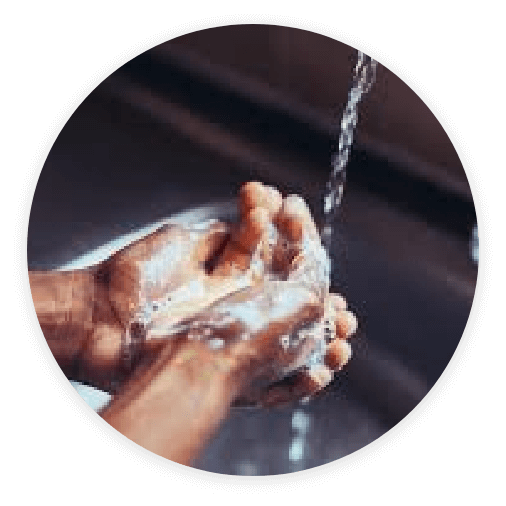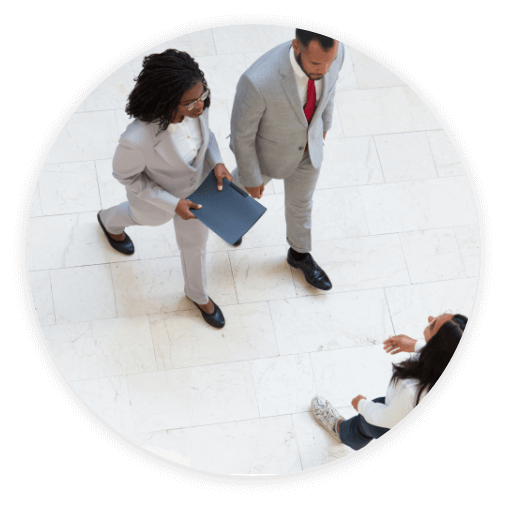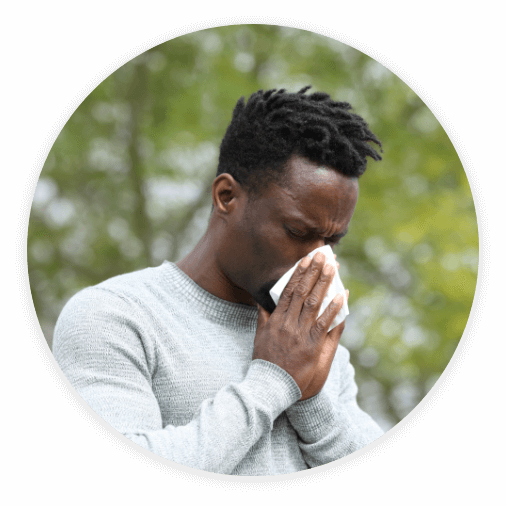How To Protect Yourself
Know How it Spreads | Take steps to protect yourself | Take steps to protect others
Know How it Spreads
- There is currently no vaccine to prevent coronavirus disease 2019 (COVID-19).
- The best way to prevent illness is to avoid being exposed to this virus.
-
The virus is thought to spread mainly from person-to-person.
- Between people who are in close contact with one another (within about 6 feet).
- Through respiratory droplets produced when an infected person coughs or sneezes.
- These droplets can land in the mouths or noses of people who are nearby or possibly be inhaled into the lungs.

Take steps to protect yourself

Clean your hands often
- Wash your hands often with soap and water for at least 20 seconds especially after you have been in a public place, or after blowing your nose, coughing, or sneezing.
- If soap and water are not readily available,use a hand sanitizer that contains at least 60% alcohol. Cover all surfaces of your hands and rub them together until they feel dry.
- Avoid touching your eyes, nose, and mouth with unwashed hands.

Avoid close contact
- Avoid close contact with people who are sick
- Stay away from others: As much as possible, you should stay in a specific “sick room” and away from other people in your home. Use a separate bathroom, if available.
-
Limit contact with pets & animals: You should restrict contact with pets and other animals, just like you would around other people.
- Although there have not been reports of pets or other animals becoming sick with COVID-19, it is still recommended that people with the virus limit contact with animals until more information is known.
- When possible, have another member of your household care for your animals while you are sick with COVID-19. If you must care for your pet or be around animals while you are sick, wash your hands before and after you interact with them.
Take steps to protect others
Stay home if you’re sick
- Stay home People who are mildly ill with COVID-19 are able to recover at home. Do not leave, except to get medical care. Do not visit public areas.
- Stay in touch with your doctor. Call before you get medical care. Be sure to get care if you feel worse or you think it is an emergency.
- Avoid public transportation: Avoid using public transportation, or taxis if possible.

Cover coughs and sneezes
- Cover:Cover your mouth and nose with a tissue when you cough or sneeze or use the inside of your elbow.
- Dispose: Throw used tissues in a lined trash can.
- Wash hands: Immediately wash your hands with soap and water for at least 20 seconds. If soap and water are not available, clean your hands with an alcohol-based hand sanitizer that contains at least 62% alcohol.

Wear a facemask if you are sick
- If you are sick: You should wear a facemask when you are around other people and before you enter a healthcare provider’s office.
- If you are caring for others: If the person who is sick is not able to wear a facemask (for example, because it causes trouble breathing), then people who live in the home should stay in a different room. When caregivers enter the room of the sick person, they should wear a facemask. Visitors, other than caregivers, are not recommended.

Clean and disinfect
- Clean AND disinfect frequently touched surfaces daily. This includes tables, doorknobs, light switches, countertops, handles, desks, phones, keyboards, toilets, faucets, and sinks.
- If surfaces are dirty, clean them: Use detergent or soap and water prior to disinfection.
- Wash hands: Wash your hands often with soap and water for at least 20 seconds. This is especially important after blowing your nose, coughing, or sneezing; going to the bathroom; and before eating or preparing food.
- Hand sanitizer: If soap and water are not available, use an alcohol-based hand sanitizer with at least 62% alcohol, covering all surfaces of your hands and rubbing them together until they feel dry.
- Soap and water: Soap and water are the best option, especially if hands are visibly dirty.
- Avoid touching: Avoid touching your eyes, nose, and mouth with unwashed hands.

Monitor your symptoms
-
Seek medical attention, but call first: Seek medical care right away if your illness is worsening (for example, if you have difficulty breathing).
- Call your doctor before going in: Before going to the doctor’s office or health facility or emergency room, call ahead and tell them your symptoms. They will tell you what to do.
- Wear a facemask: If possible, put on a facemask before you enter the building. If you can’t put on a facemask, try to keep a safe distance from other people (at least 6 feet away). This will help protect the people in the office or waiting room.
- Follow care instructions from your healthcare provider and local health department: Your local health authorities will give instructions on checking your symptoms and reporting information.
